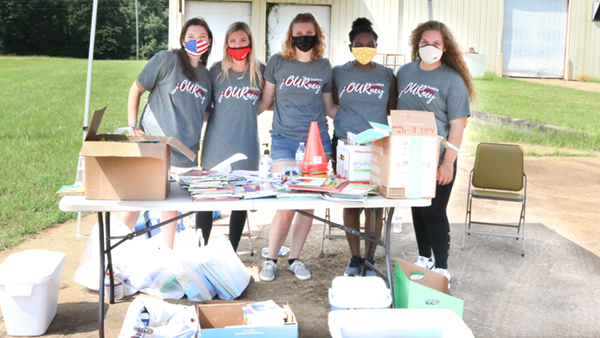By W. Mark Tew, President, and Mary Amelia Taylor, Associate VP for Marketing & Communications, Judson College
In the Book of Daniel, the writer and his three Hebrew friends were exiled to a new land — the city of Babylon. Once they arrived, the teenagers were given new names, new routines and, in their new polytheistic religious culture, numerous opportunities to leave their faith.
Kept in the king’s court as young people with potential to be of service to the king, Belteshazzar (Daniel), Shadrach, Meshach and Abednego were to be students for three years, with all of their needs and education provided. It isn’t too great of a leap to conclude their other daily routines were prescribed and monitored. These students ate well, exercised well and slept well.
They also decided well and discussed well. Because Daniel had studied the Mosaic law, he knew not to eat the food provided by the Babylonian court. Daniel 1:8 says, “Daniel resolved he would not defile himself.” Daniel determined ahead of temptation that he would follow the teachings of God. He decided well.
Respecting the authority of the king, Daniel presented Ashpenaz, chief of King Nebuchadnezzar’s court officials, with an alternative: “Test us for 10 days” (1:9). Daniel articulated his situation, explained his beliefs and offered an alternative. Daniel learned at a young age the art of finding common ground without compromising conviction. He learned to discuss well.
These decisions of Daniel and his friends resulted in the four young students learning well.
God “gave Daniel favor” (1:9) in the eyes of the court officials and “gave [the students] learning and skill in all letters and wisdom” (1:17). Because God gave the favor and the learning, the students were “in every matter of wisdom and understanding … ten times better than all the magicians and enchanters in the kingdom” (1:20).
Daniel continued to live in Babylon throughout the Jews’ captivity, and his growth in knowledge of and faithfulness to God’s teachings made him fruitful in his new land. His service to the king gave him privileged access to the highest levels of society; eventually he became one of only three administrators over the provincial governors throughout the kingdom (6:1).
In many ways, the year 2020 has been a new land for all of us.
The realities of the COVID-19 pandemic have prompted life on Judson’s campus to adapt to a new routine. Classrooms, chapel gatherings, dining hall procedures and athletic schedules have been modified to accommodate social distancing standards and other health precautions as we have sought to provide a safe place for our students to eat well, exercise well and sleep well.
In the spring, on-campus students and faculty shifted quickly to fully online modes of learning and instruction, and the Judson community found new ways to connect with each other, from online chapel services and Bible studies to online residence hall movie nights.
This fall, Judson welcomed a new class of 86 students, a 30% increase in new student enrollment over the 2019–2020 year. As they grow in knowledge and faith together, Judson’s on-campus students have continued their commitment to love and serve their neighbors through monthly service opportunities in Perry County.
Student leaders initiated a name change for their weekly Bible study and worship service, taking the name “Six Forty-Eight” from Luke 6:48: “They are like a builder who dug down deep and laid the foundation on rock. When a flood came, the torrent struck that house but could not shake it, because it was well built.”
God at the center
Since 1838, Judson students have been encouraged to build their lives on a firm foundation of knowledge and faith in God. They learn well as they reflect God’s Light and Truth (their college’s motto) in a society that doesn’t always honor those things. With God at the center of their lives — their daily routines, their decisions, their discussions and their learning — they, like the students in Daniel, can be fruitful in a new land. So can we.






Share with others: